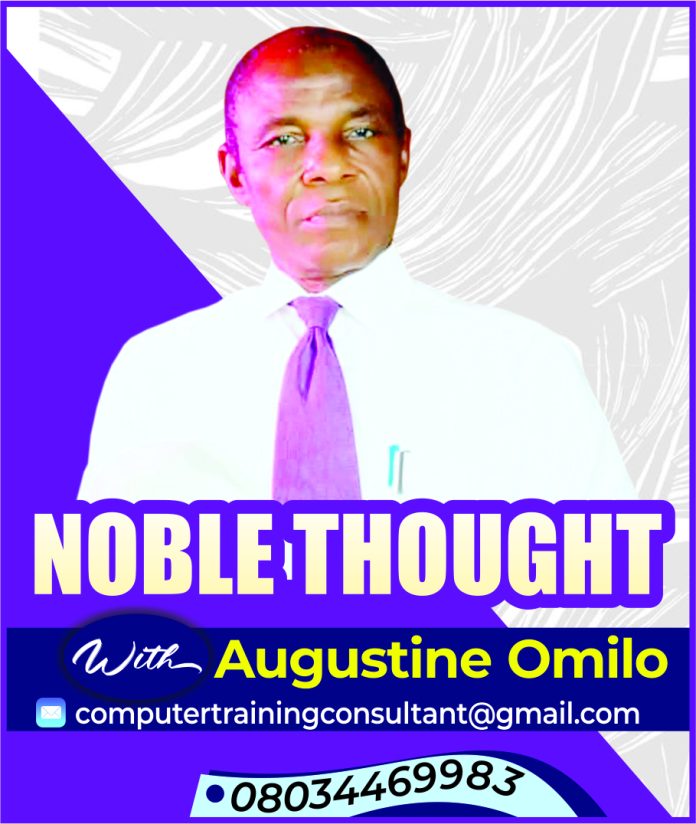In the words of Margaret Mead (1901 – 1978), an American cultural anthropologist, author and speaker; “Never doubt that a small group of thoughtful, committed citizens can change the world; indeed, it’s the only thing that ever has”. Of course, increasing interest of men and women of timbre and caliber in the leadership of their communities as is being witnessed across the nooks and crannies of Nigeria lays credence to the validity of Mead’s assertion as recorded many years ago.
Unlike in the time past when most Presidents-General or their equivalents in Nigerian town development unions were mainly chosen from amongst indigenes that resided within the communities, irrespective of their management and intellectual exposures, today’s apolitical leadership positions at the grassroots have become so competitive that only people of sound minds are given the nod to lead the different communities, including community of alma matters of post primary schools.
It is not surprising therefore, that out of 10 members of Ika Grammar School Old Boys’ Association’s Executive Council, three are University professors while many others belong to strong professional bodies such as the Nigerian Bar association(NBA), the Association of National Accountants of Nigeria (ANAN), the Institute of Chartered Accountants of Nigeria (ICAN) and the college of Bishops. This trend is also noticeable in communities like Ekwuoma in Ika North East Local Government Area of Delta State where the Ojeiyangbe (the oldest man or the Okparan) of Idumu Ute Quarters, Sir S. E. N Okoh is a retired Professor of Economics and others where Medical doctors and serving professors are presently holding sway.
Beyond being selected from among the best minds the communities can boast of, it behooves these leaders to put on their thinking caps with a view to ensuring that the much needed character and other transformations take their roots from the grassroots.
The time of rampaging ignorance must be a thing of the past in the people’s places of origin. It is grossly unacceptable to see the Nigerian youths drifting into dangerous states of self-destruction in their quest for unexplainable wealth. This can only cease from becoming the norms in our societies when the young ones are guided by those who know better in terms of ways of ensuring financial success without cutting corners. Questionable acts of wealth creation must not be rewarded with recognitions such as front seat in churches and award of chieftaincy and other titles from highly placed institutions.
Moreover, dispelling the notion that education is a scam from the thought patterns of the youths requires exemplary conducts by those privileged to have acquired formal systems of learning in specialized places such as schools at different levels. Periodic organization of free seminars and symposia tailored towards exposing participants to legitimate means of ensuring sane societies requires a vantage position in the agenda of community leaders.
Given the great roles old students’ associations at the secondary and tertiary schools levels are playing in the positive advancement of communities, town unions should strive in the direction of establishing old pupils’ associations. This has the potentials for the lifting up of people who never had the opportunity to get educated beyond the elementary school level economically.
With the level of sophistication in human conducts, community leadership selection process must of a necessity begin to embrace modern methods of electing qualified individuals into positions of authority. Communities must move from the level of simply asking for nomination of candidates verbally. Voting for such people too must equally move from the system of a simple raise of hands by supporters to subjecting interested individuals to the collection and completion of expression of interest forms, possibly at given fees.
Again, apart from community constitutions clearly stating the minimum requirements for different elective positions, they must embrace the secret ballot system of voting supervised by carefully selected credible electoral committees.
Since many organs of governments at different levels, especially in the areas such as security and character moulding in schools, the apolitical grassroots leadership should make it a duty to offer alternatives through the funding of local security outfits with qualified supervisors.
In desiring good leadership, members of the different societies owe themselves obligations to get submitted to the local rules of law. This will not only ensure discipline, but also point their young ones to the paths of all-round success. Research has revealed that deviant attitudes like illegal demands of development fees (deve) from property developers in emerging urban neighborhoods and involvements in get-rich-schemes are better handled by communities.
Without mincing words, town unions must avoid the temptation to be driven by political desires. A president-general must be seen to be the leader of all indigenes and not a few members of the political class. In a null shell, the ills of the Nigerian societies will be reduced to the barest minimum if community leaders are appropriately inspired by government administrative supports.


